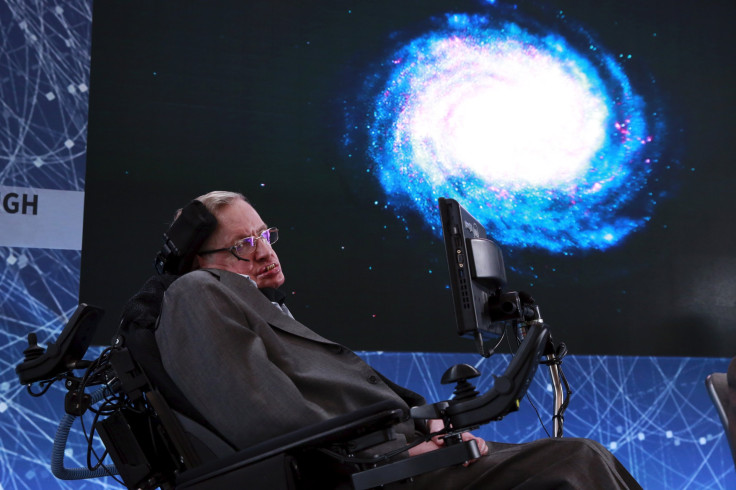Astronaut Stephen Hawking? Richard Branson Is Bringing Famous Physicist To Space

Stephen Hawking could soon become an astronaut. Hawking told Piers Morgan on "Good Morning Britain" that Richard Branson offered to take the 75-year-old physicist and cosmologist on a trip to space.
"I can tell you what would make me happy — to travel in space. I have already completed a zero-gravity flight which allowed me to float weightless, but my ultimate ambition is to fly into space," Hawking said on the segment which aired Monday. "I thought no one would take me, but Richard Branson has offered me a seat on Virgin Galactic, and I said yes immediately. Since that day, I have never changed my mind."
Read: 7 Predictions From Stephen Hawking About The Future Of The Planet And Beyond
Branson started Virgin Galactic, a private space tourism company, in 2004, and despite ambitiously hoping to launch manned space flights by the end of 2009, the company has yet to conduct a maiden flight. In 2014, the company's suborbital space plane SpaceShipTwo crashed and killed one pilot and injured another.
But last year, the company returned to the skies again with two successful test flights. Earlier this month, the company announced it had spun off its small satellite technology team into it's own company, called Virgin Orbit. Virgin Galactic has taken down payments for tickets to space, which cost $200,000 and entitle the purchaser to just a few minutes outside of the earth's atmosphere.
In 2007, Hawking experienced a few minutes of weightlessness during a flight over the Atlantic onboard a modified Boeing 727 jet operated by Zero Gravity, a U.S. company that provides zero gravity flights to passengers for a few thousand dollars.
Hawking is one of the world's most famous scientists, both for his work in cosmology and theoretical physics and his battle against ALS, a motor neuron disease that has left him in computerized a wheel chair. His 1988 popular science book, "A Brief History of Time: From the Big Bang to Black Holes," was an international bestseller.
© Copyright IBTimes 2024. All rights reserved.












